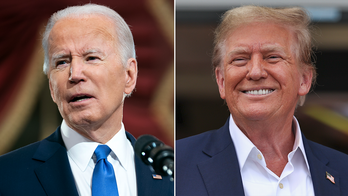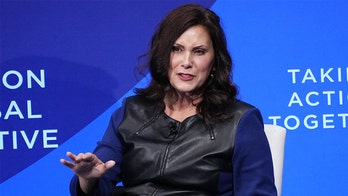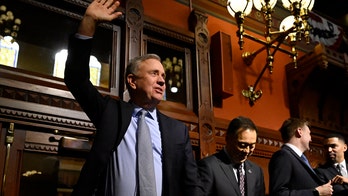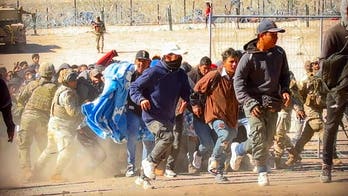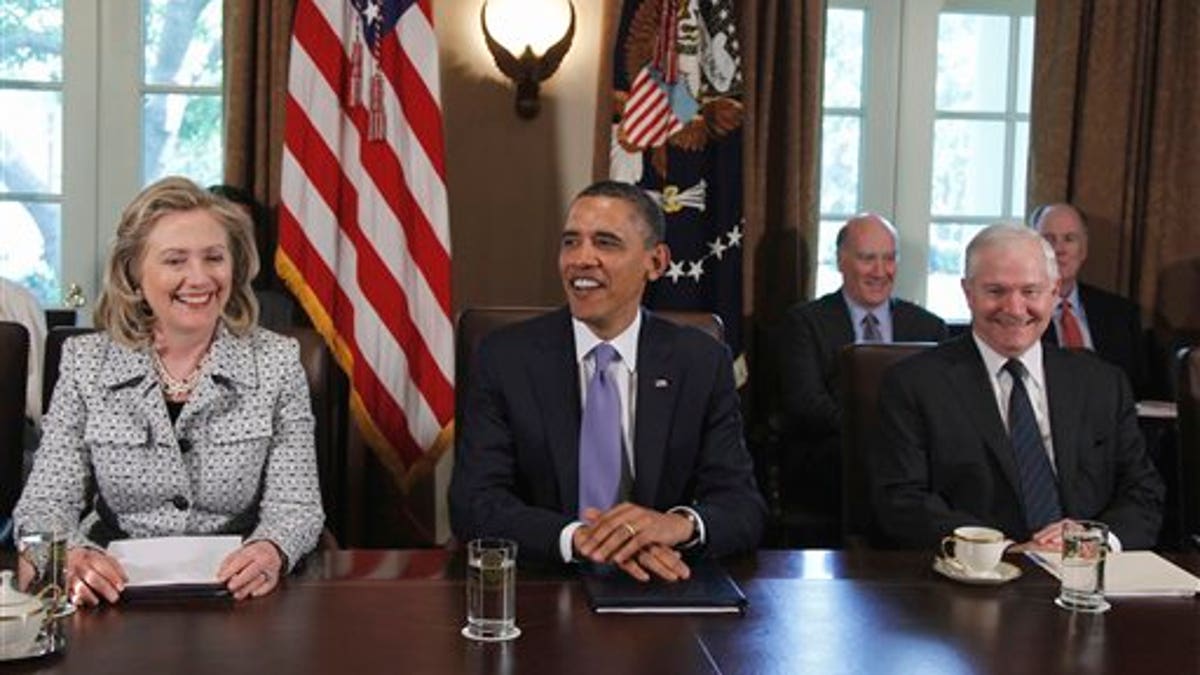
May 3: President Barack Obama, seated between Secretary of State Hillary Rodham Clinton and Defense Secretary Robert Gates at the start of a Cabinet meeting at the White House in Washington. (AP)
Usama Bin Laden knew a thing or two about American politics and how he could shape them, so one wonders what he would make of the political effect of his death. Maybe it was the second-to-last thing that went through his head (the last thing being a well-placed round fired by one of the members of SEAL Team Six).
Democrats believe that bin Laden cost them the 2004 presidential election with a tape released the weekend before the contest between President George W. Bush and Sen. John Kerry, D-Mass. Now, Democratic strategists are wondering if the death of Bin Laden can help assure the re-election of Obama.
The early indications are that Obama’s moment to politically profit from the operation will be brief, with the central challenge being finding a way to confer the good feelings about the SEALs strike on to the other, more beleaguered, measures of his leadership. If Obama wants to turn the operation into a pivot point for his presidency he will need to work fast.
In 2008, then-Sen. Barack Obama made bin Laden a central part of his effort to show that while he was opposed to the Iraq war, he wasn’t a pacifist. Obama declared that he would send American forces to chase bin Laden into the caves of Pakistan, whether the Pakistanis would assist or not.
It prompted cries of alarm that Obama would risk turning an a nuclear-armed nation of 170 million Muslims from an ally into an enemy. But for Obama, who was taking heat for saying he would meet with the leaders of rogue nations, like Mahmoud Ahmadinejad of Iran, without preconditions, the line helped him sound a bit tougher to voters.
More importantly, it stabbed at one of the deepest wounds of the Bush presidency: that the butcher of 9/11 remained at large despite a seven-year manhunt. It also forced Sen. John McCain, who didn’t expect to be defending his warrior bona fides against a community organizer, to up the rhetorical ante and say that he would follow bin Laden to “the gates of Hell.”
While bin Laden wasn’t in a cave, but rather a compound in a upscale neighborhood just down the road from the Pakistani military academy, Obama made good on his campaign promise to find the terror master. And for that, he will reap a considerable political reward.
Republican pollster Bill McInturff calculated that Bush got a 15-point bounce in his Gallup approval numbers after Iraqi despot Saddam Hussein was captured in December 2003. The bounce lasted for seven weeks.
It’s hard to know exactly how much the bin Laden killing will help Obama, but a Saddam-sized bump is looking a little unlikely. While bin Laden was a more hated figure that Hussein, the Iraq war was more central to Bush’s standing than the battle with al Qaeda is to Obama. Bush staked his reelection on the Iraq war and the capture of the tyrant was evidence that it was working. Obama’s central challenges relate to his handling of the economy and his national health care law.
Early polling shows that Obama has obtained a bump in the polls, but the benefits are stovepiped, which is to say limited to the areas of handling terrorism without a corresponding increase in approval for his handling of other issues, particularly the economy.
Obama’s first trip as president to Ground Zero on Thursday must not only emboss the killing of Bin Laden with Obama’s monogram, but also cast the moment as a turning point in the so-far bumpy path of his term. Bush’s bullhorn address became the signature moment of his presidency, and Obama needs to associate himself with that spirit.
There is a political downside to the bin Laden success, too.
Obama’s strategy for the war in Afghanistan is to start winding down the troop surge that has worked to pacify Taliban-held potions of the country while simultaneously ramping up the pressure on insurgent leaders across the border in Pakistan. The appointment of Gen. David Petraeus to lead the CIA is a strong suggestion of the role Obama sees for the agency in fighting a covert war in Pakistan.
But the fact that bin Laden was living in a cushy compound right under the noses of the Pakistani military elite instead of rotting in a dank cave raises disturbing questions about the fitness and honesty of our allies in Islamabad. Many believe that bin Laden hiding in plain sight is proof of either incompetence or complicity.
As Obama begins the troop drawdown in Afghanistan this summer, he will put his credibility on foreign policy back on the line, and he’ll be leaning on an uncertain ally when he does so.
Obama’s re-election will likely depend more on the state of the economy a year from now than what happens overseas. But whether Americans feel confident or uncertain about their nation’s status and safety will provide context for the 2012 vote.
Chris Stirewalt is FOX News’ digital politics editor. His political note, Power Play, is available every weekday morning at FOXNEWS.COM.

